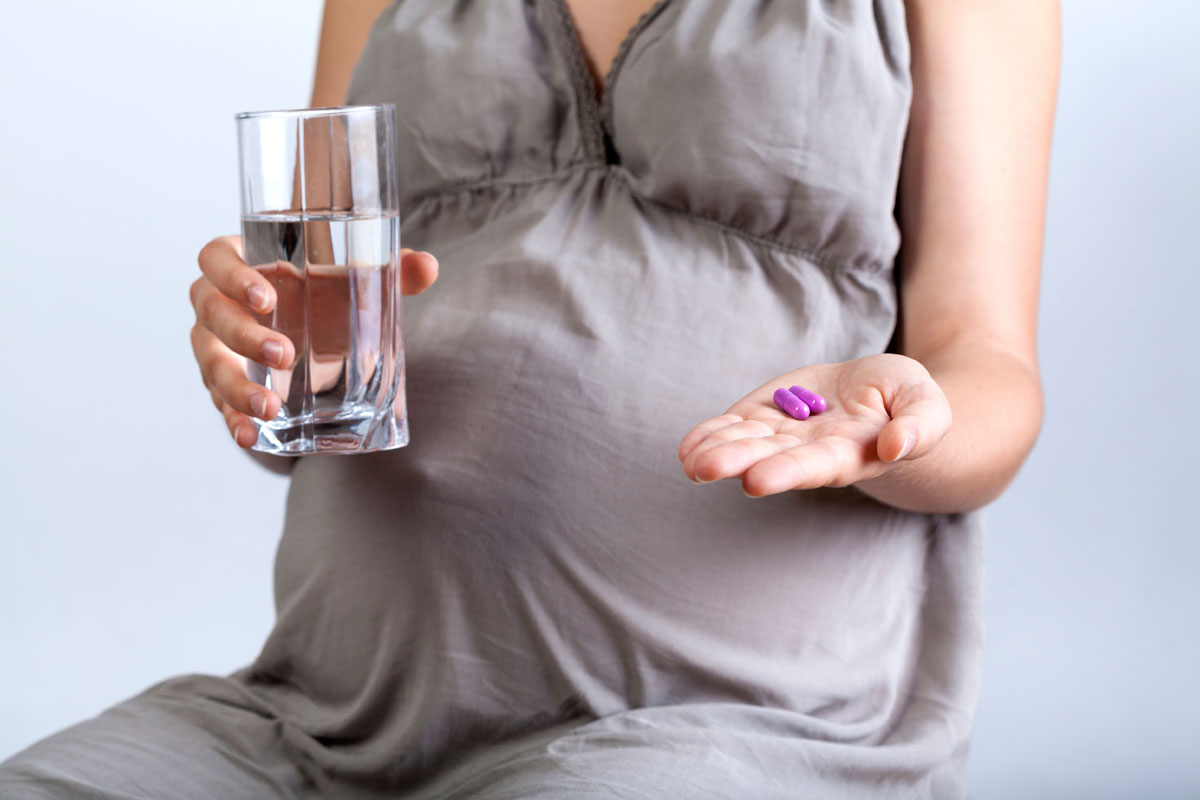
All mothers know that hormones run wild while you’re pregnant. One moment you are laughing at a friend’s joke, and the next moment you are bawling in the bathroom at your child’s refusal to eat their broccoli.
There are many techniques that mothers use to cope with the fluctuating emotions of pregnancy and the postpartum period.
What do you do when those techniques aren’t enough to keep you from depression, or from being flooded with negative thoughts? What if you were on anti-depressants before becoming pregnant?
When these questions arise, you want answers; ones that take the health of your physical and psychological state into consideration, as well as the health of your child.
It is not uncommon for mothers to experience depression during pregnancy and beyond.
Seleni reported:
“According to a 2009 study by the American Congress of Obstetricians and Gynecologists and the American Psychiatric Association, up to 23 percent of pregnant women experience depression. At least 13 percent take antidepressant medication during pregnancy. But others decide not to treat their depression or choose alternatives to medication.”
The stigma of psychological illnesses, especially depression and anxiety, have been waning in the past few years.
At the same time, alternatives to pharmaceutical options have been increasingly sought out.
Seleni reported:
“There are benefits and drawbacks both to using medication and to going without it, says Olivia Bergeron, a New York-based licensed clinical social worker who specializes in treating women with perinatal depression. “Educating yourself about your options is essential. The gold standard for treatment is psychotherapy combined with medication. However, some people will respond very well to just therapy or just medication. I usually do not advocate medication alone.””
There are many therapeutic models in practice for pregnant and postpartum women that have proved effective without medication, or in combination with medication, these include:
- Cognitive behavioral therapy
- Interpersonal therapy
- Psychodynamic psychotherapy
There has, also, been some alternative non-therapeutic options that have been shown to decrease depression in pregnant women, such as:
- Omega-3 essential fatty acids, which are found in foods such as oily fish and walnuts, and can act as a natural mood-booster
- Light therapy, in which patients are exposed to artificial sunlight at specific times of the day to help relieve depression symptoms
- Acupuncture, a Chinese practice that (in this case) involves placing tiny needles into areas of the body thought to influence mood
There are approximately 500,000 pregnant women who battle a psychiatric or mood disorder, with approximately 33% of these women taking medication to combat their illness, according to the American Congress of Obstetricians and Gynecologists.
The commonly used medications prescribed to pregnant women for depression are selective serotonin reuptake inhibitors (SSRI) such asProzac, Zoloft, Lexapro, and Paxil.
An SSRI anti-depressant works by slowing or blocking the reuptake of neurotransmitters, like serotonin and norepinephrine, so more of those good chemicals stick around in the synapses to give you the elevated feeling associated with a good mood.
Surprisingly, there is very little by the way of research regarding the effects of medication on pregnant women, or their child in utero.
Inadequate testing leaves us to rely on doctor’s discretion. The danger could be that the lack of research gives them room to take more risks.
Recent studies seem to give sufficient evidence for healthcare providers to heed caution when prescribing SSRI’s to pregnant women.
Today’s Parent reported on a study published in the BMJ Openby Anick Bérard, a professor of epidemiology in the faculty of pharmacy at the University of Montreal and a researcher at CHU Sainte-Justine children’s hospital, that found:
“Taking citalopram was linked to a 36 percent increase in the likelihood of major birth defects, compared to not being exposed to antidepressants.”
In addition, Medicines in Pregnancy reported:
“Heart defects have also been shown to occur slightly more frequently in babies of mothers who took SSRIs other than citalopram in the first trimester of pregnancy. Although this may be because all SSRIs affect some babies’ heart development in a similar way..”
It is commonly known that all medications have a risk of side-effects. The challenge is to weigh the risk of depression, to the risk of birth defects, or other health complications after the child is born.
Mothers who go through the daily challenges of depression should discuss the severity of their illness with their practitioner, to see if they can safely navigate pregnancy and the postpartum period without the use of prescription medication.
Under medical supervision, see if using therapeutic methods apart from medication gives you the relief you need to function in your daily tasks.
If it is necessary to use medication during pregnancy or the postpartum period, don’t beat yourself up. Your overall health is necessary to care for your baby appropriately. Do the option that keeps you and baby safe.
The use of a strong support system could mean the world in regards to the health of your child.
Have a friend or family member that checks in with you daily to assess your mood, go to support groups for other mothers struggling with depression, and get involved with a hobby that interests you (now would be a good time to learn how to knit those baby booties.)
Postpartum Support International has a list of providers that are familiar with perinatal mood disorders and can help you with navigating your medication dilemmas.
Please let us know if you have had to deal with depression during pregnancy and how you overcame it; by means of medication or otherwise.
